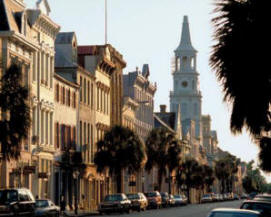|
Unique Cruise Solutions The news you need to know |
|||||||||||||||||
|
|||||||||||||||||
 |
|
|
|||||||||||||||
|
Cruise News for the Corporate Travel Professional |
|||||||||||||||||
|
Charleston business's support Carnival's "Liberty" |
||||||||||||||||
 A recent hotel market analysis of the greater Charleston, S.C., area based on data from 164 hotels in the Charleston region tended to prove that cruise ship activity increases occupancy and raises rates. The study, commissioned by the
South Carolina State Ports
Authority and completed by consultant Bottom-Line Analytics, found that 1,158
additional room nights were booked immediately before and after a cruise ship
docked. Carnival, which homeports the 3,000-passenger Carnival Liberty in Charleston, was targeted in a lawsuit filed in June by four citizen groups that claimed the line is in violation of several local zoning ordinances. In August the ports authority and the city of Charleston
joined Carnival in petitioning the state Supreme Court, asking it to dismiss the
case. The outcome is pending, but the regional business community has rallied
behind Carnival since the lawsuit was filed. According to researcher John Crotts, “The data show only
positive benefits of embarkations and debarkations on hotel revenue, from what
is a modestly scaled cruise operation.” |
|||||||||||||||||
|
|
|||||||||||||||||
|
|
|||||||||||||||||
|
Worldwide Travel & Cruise Assoc., Inc. 150 S. University Dr. Ste E, Plantation, FL 33324 - USA Tel: +1 954 452 8800 Fax: +1 954 252 3945 EMail: sales@cruiseco.com |
|||||||||||||||||
|
Designed & Published by: Worldwide Media. |
|||||||||||||||||



